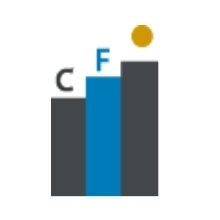

World Bank's Center of Excellence on Cooperative Financial Institutions (CoE-CFI)
Authors
Tags
- COVID-19 (2)
- Private Sector Development (1)
- Institutional Strengthening (2)
- Cooperative-financial-institutions (2)
- Rural Livelihoods (1)
- Category - Technology (3)
- Category - Safety Net (1)
- Category-Financial Cooperatives Sectors (2)
- Collaboration and Knowledge Exchange (1)
- Digital Technology & Innovation (1)
- Women in CFI (1)




Blog » Women in Financial Cooperatives: webinar takeaways and the way forward
Women in Financial Cooperatives: webinar takeaways and the way forward
By Rubiga Sivakumaran and Bjorn Schrijver
Including women in financial cooperatives: an uphill battle or good business? This was the leading question of the webinar that was organized by the World Bank (WB) and Rabo Partnerships (RP) on Wednesday, 21 April 2021, as part of their global partnership on strengthening financial cooperatives.
Being a historically important actor in the financial inclusion and economic empowerment among the most vulnerable populations, particularly those living in rural areas, Cooperative Financial Institutions (CFIs) can play a critical role in closing the gender gap. Having a business model which is anchored in their characteristics as locally-based, member-owned organizations, CFIs ideally mirror the society in which they are operating: because of their responsibility to work for the sustainable development of their communities, but also in order to stay relevant and alive. In a draft discussion paper prepared by Rachel Sberro-Kessler (Financial Sector Specialist at WB) and Rubiga Sivakumaran (Program Coordinator at RP), initial research was conducted on how CFIs are currently serving women, and vice versa: what women can offer to CFIs.
Challenges for women inclusion in CFIs are both on the demand and supply side. On the demand side, women are often struggling because they lack income, collateral, and/or financial literacy. Looking at the supply side, there is a lack of data, trained staff on providing services to women, and/or a consideration of gender as a priority.
Three CFIs from over the world (Mann Deshi in India; FED invest in Albania, and CIF[1] in West Africa) were interviewed for the paper, bringing the observation that different approaches exist to include women, therewith overcoming (some of) the preceding obstacles. Mann Deshi in India applied a “women-only model” by exclusively focusing on women. The two other cooperatives are gender neutral in their constitution, but adopt different approaches to women inclusion. FED invest in Albania has a specific mandate to empower women through a “household approach”: all credit contracts offered need to be co-signed by the credit taker’s spouse. Finally, CIF in West Africa offers individual loans as part of joint liability groups, using social pressure as a substitute for collateral which often times women do not have. Interested in the different insights to which these diverse models might lead, WB and RP invited representatives of all three institutions to the webinar on 21 April, as depicted in the picture below.
After inspiring opening remarks by Ndaya Beltchicka (Lead Technical Specialist on Gender at IFAD) and Eleni Giakoumopoulos (Program Director of the Global Women’s Leadership Network, World Council of Credit Unions) and presenting main findings of the discussion paper, the three panellists were asked questions about three topics:
All speakers and panelists agreed on the cruciality of the topic: “If you want an economy to continue to grow, there is no other choice: we have to include women” Chetna Sinha stated outrightly. But also for CFIs themselves, women can bring plenty of benefits such as better repayment rates, women being less prone to borrowing beyond their needs, and according to Albana Beta “women are more eager to engage in trainings than men, especially when it comes to digital literacy”.
While the invited CFIs have different reasons for and ways to include women, they all agree that digitization can be a strong enabler in doing so. Yet, it always remains important to consider women’s specific needs and challenges when developing solutions, listening to their innovative ideas. “Never bring poor solutions to poor people” Chetna shared as one of the lessons she learned from women. And a tool that might work for some, does not automatically work for all. Besides, governments can play an important and facilitating role in the journey towards women inclusion when it comes to sex-disaggregated data collection, financial education, and incentives for CFIs to offer credit to customers who lack collateral. Because even though some successful examples were presented during the webinar, many challenges remain. As Mathieu Soglonou concluded: “an uphill battle for today, good business for tomorrow”.
The joint WB/Rabo program has the objective to promote the development of cooperative financial institutions in selected countries by strengthening the networks, as well as improving the regulatory and supervisory environment they operate in. Next to a Center of Excellence (CoE) through which WB and RP aim to disseminate knowledge and create an online community by organizing webinars, posting discussion papers and blogs, and sparking discussion, the country activities are a crucial part of the program. After an initial diagnostics phase, activities were commenced in Ethiopia, West Africa, and Colombia.
For the coming year, it is envisioned to further leverage on the country activities, with a different approach for each network. Because, as we have seen in the webinar: one size does not fit all. In the context of the CoE, the WB/RP team aims to write a discussion paper and organize a corresponding webinar on a quarterly basis. Besides this, Rachel and Rubi will finalize the discussion paper based on insights from the webinar, and publish it afterwards.
[1] Confédération des Institutions Financières Afrique de l’Ouest